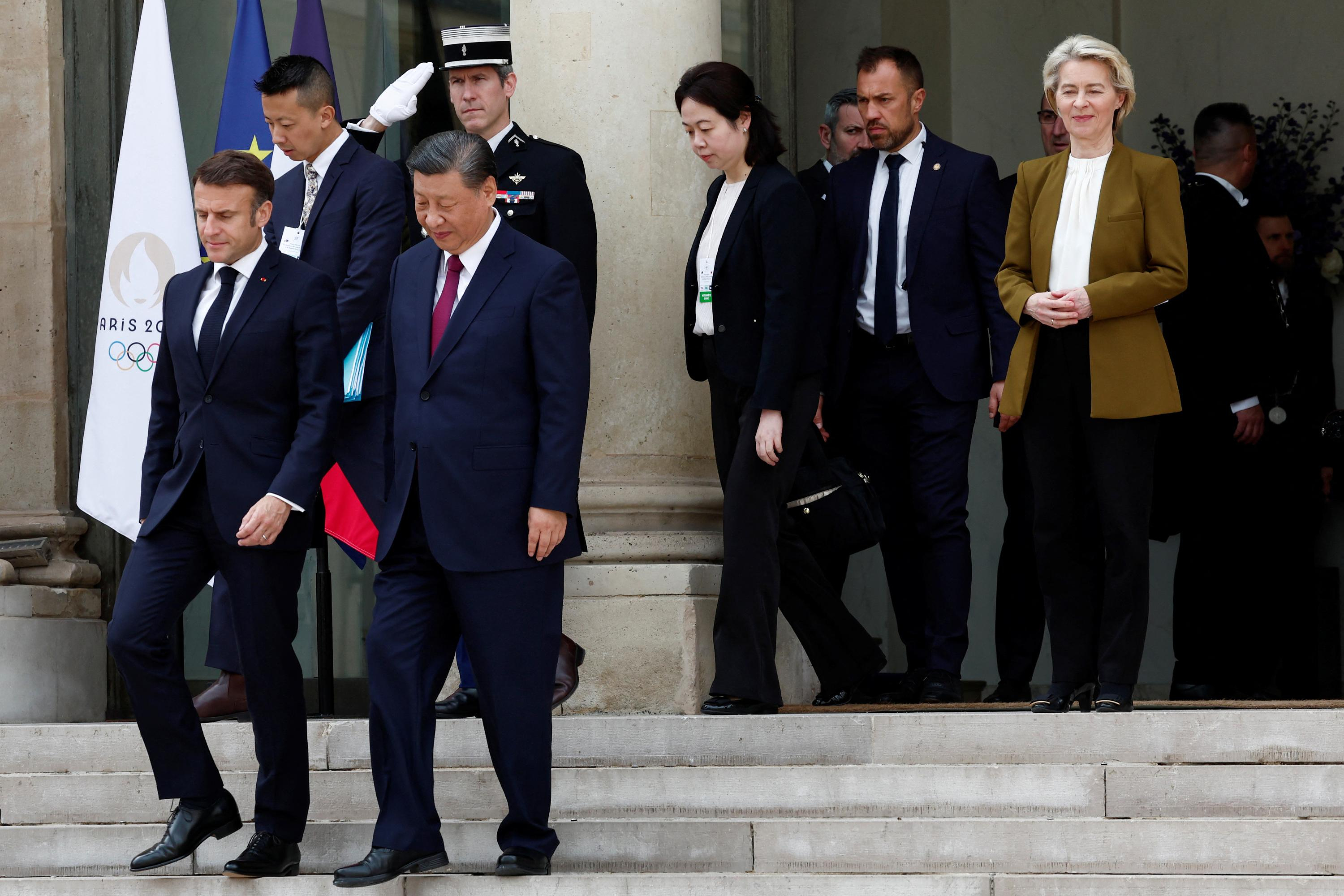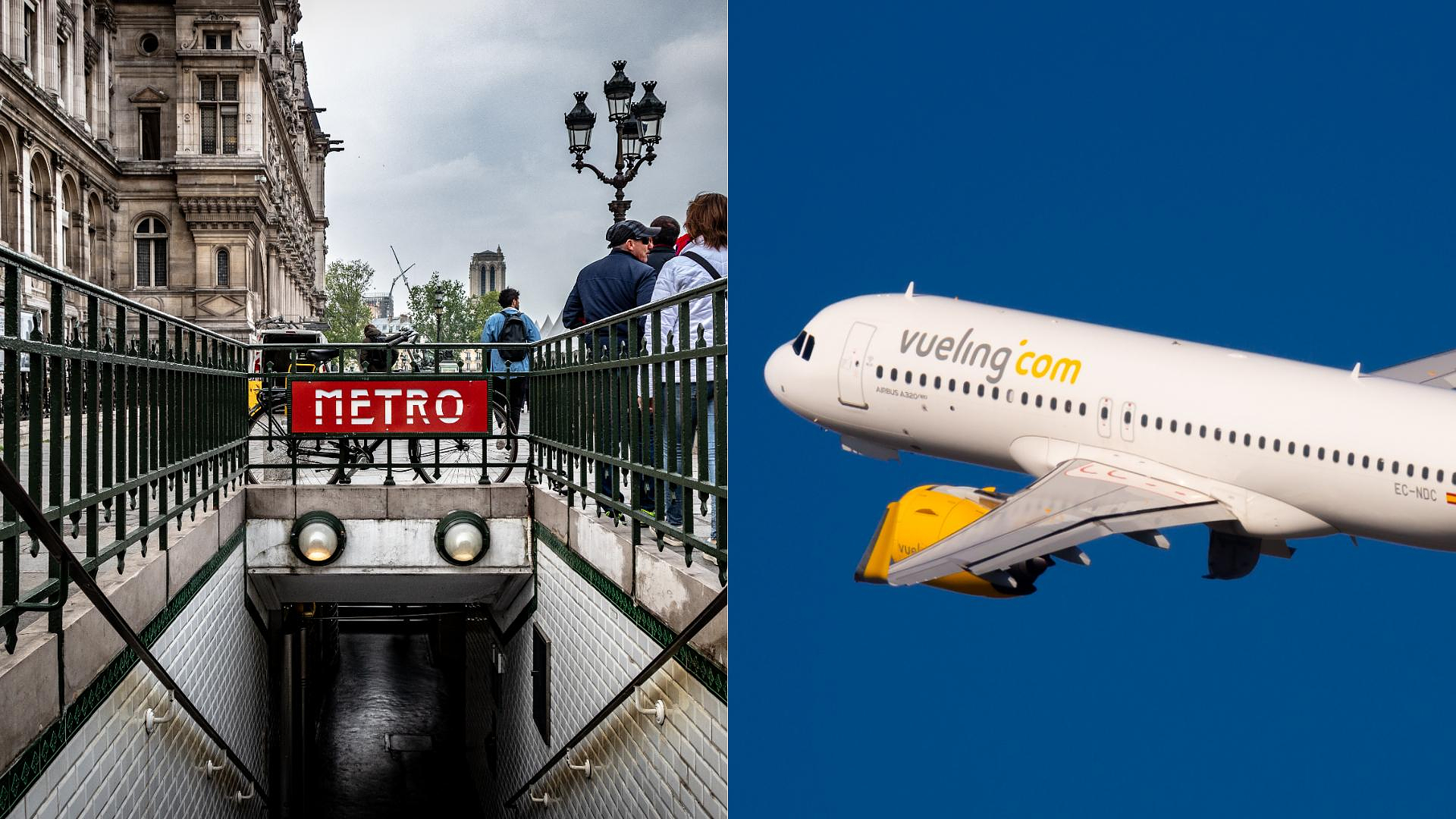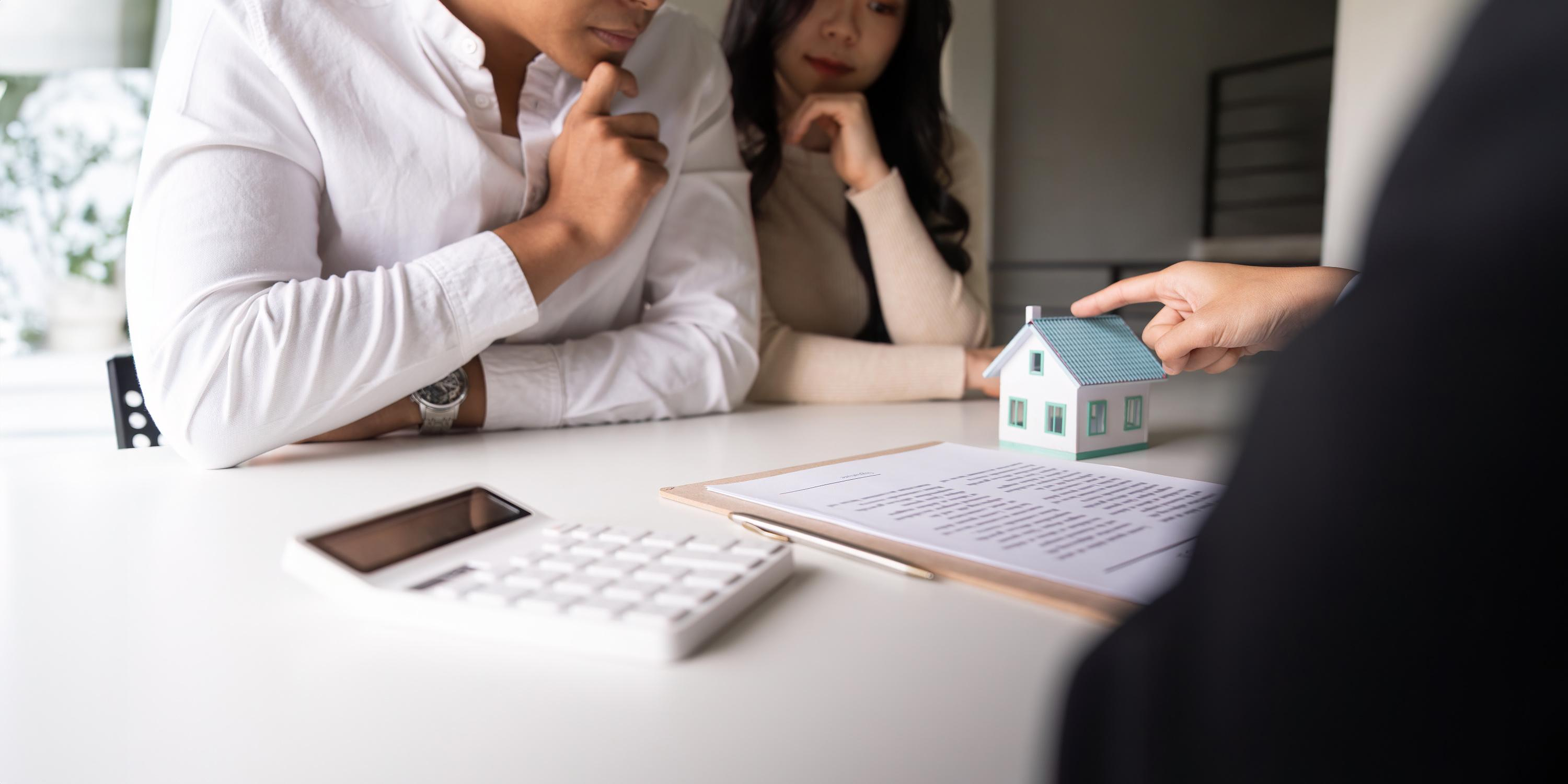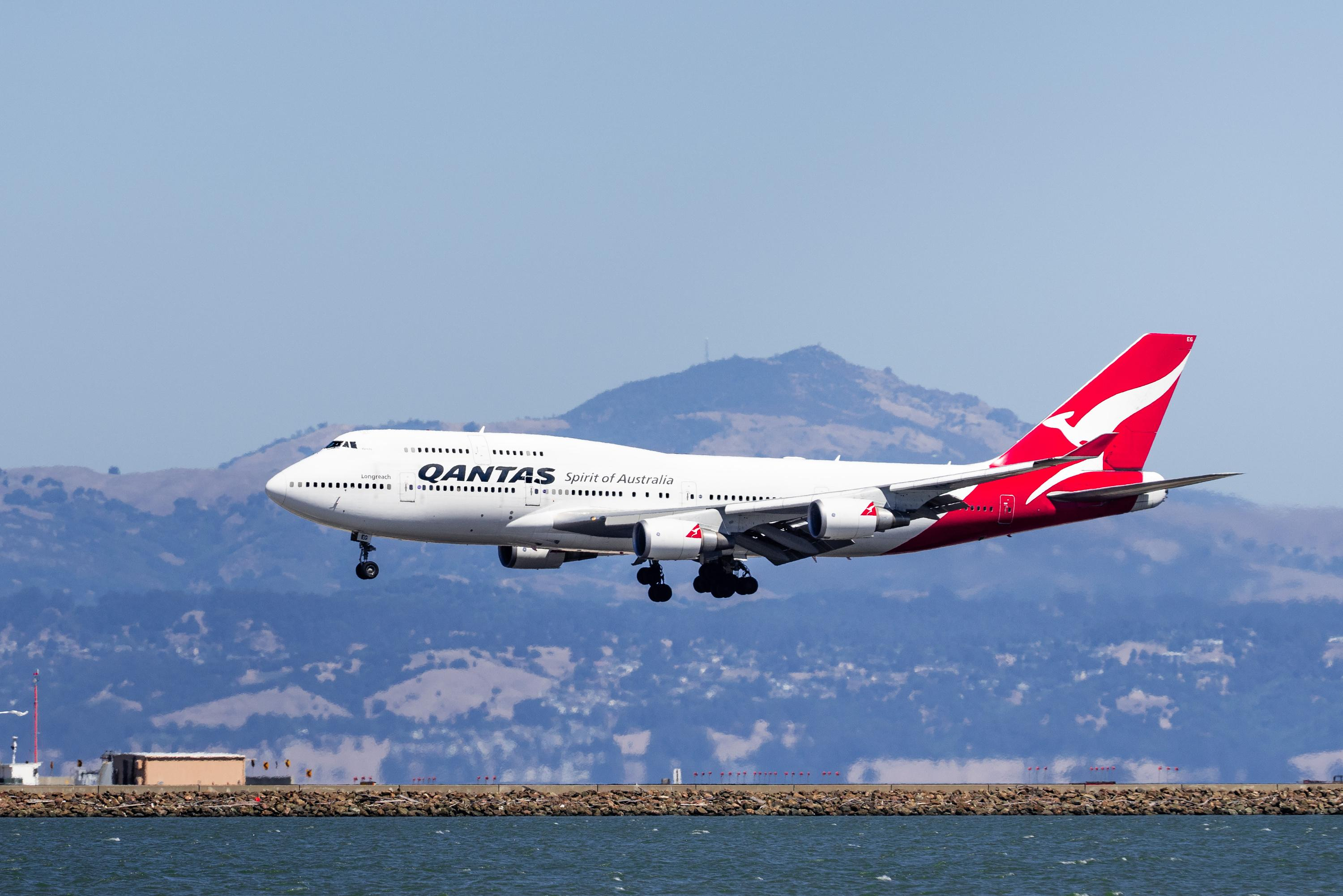Correspondent in Washington,
If the American president is not above the laws, they do not apply entirely to him either. The Supreme Court, which heard oral arguments on Thursday, April 25 in the Trump vs. United States case, where Donald Trump is accused of having tried to overturn the result of the 2020 election, did not fully grant the former president the total immunity he claims for acts committed while he was in office. But the justices also appeared dissatisfied with the prospect of criminal charges being brought against a former president, and expressed concern about the precedent they might set.
The Supreme Court hearing only gave indications of what its final decision might be. But the very fact that she took up the matter already constitutes a victory for Trump. His most serious trial, which was due to open on March 4, has already been postponed when the Court announced that it would examine the question of presidential immunity. A new deadline could be imposed, potentially further delaying the start of the trial, perhaps even beyond the November presidential election. If Trump is elected, he could have the Justice Department drop the charges, or even, in theory, pardon himself if convicted.
Trump was indicted in this case in August 2023 by Special Prosecutor Jack Smith. He faces four counts of conspiring to overturn the results of the 2020 election, culminating in the riot at the Capitol on January 6, 2021. Trump's lawyers had asked the judge District Attorney Tanya Chutkan to dismiss the charges against him, arguing that he could not be held criminally responsible for his official actions, even after leaving office. The judge denied that request in February, and the District of Columbia Court of Appeals upheld that decision. Trump then turned to the Supreme Court, which agreed at the end of February to rule on the issue. The trial, initially scheduled for March 4, is now suspended pending the Supreme Court's decision.
Special prosecutor Jack Smith and his team, who drafted the indictment, say the Constitution never intended presidents to be above the law and that Trump's alleged acts, including producing lists of fake electors in states won by Joe Biden, are not really part of his official duties.
Even though the majority of judges did not accept the idea of absolute presidential immunity, conservative judges seemed more concerned about the danger the president faces than about the danger he may pose. In their view, without at least partial immunity, future presidents would risk being subject to systematic, politically motivated prosecutions, and their authority would be diminished if they had to worry about the consequences. criminal charges for their actions.
They suggested they wanted to place limits on prosecutions of former presidents, and define a form of immunity that would last beyond their terms in office. Samuel Alito, one of the conservative justices, suggested that denying immunity to former presidents risked complicating the transfer of power, with outgoing presidents fearing being sued by their adversary and thus being encouraged rather than deterred to respect the law. A former federal prosecutor, he invoked a saying that a grand jury would indict a sandwich if a prosecutor asked it to. “Whatever we decide, it will apply to all future presidents,” Alito insisted. “This case has enormous implications for the future of the presidency and the future of the country,” said Brett Kavanaugh, one of the judges appointed by Trump.
The progressive justices, Sonia Sotomayor, Elena Kagan and Ketanji Brown Jackson, raised the potential implications of a president's absolute immunity. Kagan asked what would happen if a president ordered the military to stage a coup, or sold nuclear secrets. Jackson said she feared presidents were being placed above the law. “If there is no threat of criminal prosecution, what’s stopping the president from doing what he wants…and turning the Oval Office into the headquarters of criminal activity in this country?”
Trump's lawyer acknowledged that some of the acts alleged against Trump were private, including when the president conspired with his lawyers and campaign advisers to spread false claims of election fraud, or establish false presidential lists. voters, and therefore was not fully covered by presidential immunity. Judge Amy Coney Barrett, another judge appointed by Trump, on the other hand seemed less open to the arguments put forward by the former president's defense. She noted that if a president who orders a coup is impeached and convicted by the Senate, but it is determined that his actions were part of his official duties, he could not be prosecuted after leaving office if this theory were applied.
With four of the court's conservative justices appearing to lean in favor of some form of presidential immunity, the decision could hinge on the court's chief justice, John Roberts. He criticized the decision of the Court of Appeal. “From what I've read, she's just saying that a former president can be prosecuted because he's being prosecuted,” Roberts quipped. The Court is expected to issue its decision by the end of June or the beginning of July. Even if the judges rule that Trump can still be criminally prosecuted, the timing of their decision, and the likely additional procedures, for example to determine which acts are official and which are private, could still delay the opening of the trials . That of Washington DC, but also that of Florida, where Trump is accused of having illegally kept confidential documents, and that of Georgia, where he is indicted for trying to overturn the election in that state, could thus be delayed. Any new decision could each be the subject of an appeal, a procedure which could again lead to the Supreme Court. As he appeared in court in New York for his first trial, Trump saw the prospect of seeing the other three open recede further. Short of a total victory that the Supreme Court's affirmation of his total immunity would have represented, Trump at least wins a significant reprieve.

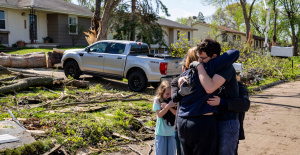 “Mom, Dad, please don’t die”: in the United States, a nine-year-old child saves the lives of his parents injured in a tornado
“Mom, Dad, please don’t die”: in the United States, a nine-year-old child saves the lives of his parents injured in a tornado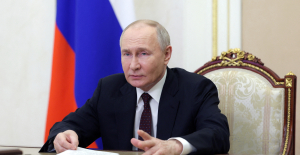 War in Ukraine: Putin orders nuclear exercises in response to Macron and “Western leaders”
War in Ukraine: Putin orders nuclear exercises in response to Macron and “Western leaders”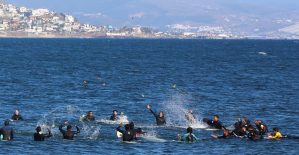 Mexico: the last moments of surfers found in a well, killed with a bullet to the head
Mexico: the last moments of surfers found in a well, killed with a bullet to the head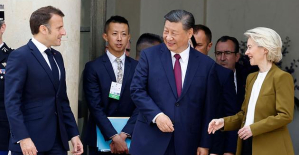 Emmanuel Macron and Ursula von der Leyen display their firmness against Xi Jinping
Emmanuel Macron and Ursula von der Leyen display their firmness against Xi Jinping A baby whose mother smoked during pregnancy will age more quickly
A baby whose mother smoked during pregnancy will age more quickly The euro zone economy grows in April at its best pace in almost a year but inflationary pressure increases
The euro zone economy grows in April at its best pace in almost a year but inflationary pressure increases Children born thanks to PMA do not have more cancers than others
Children born thanks to PMA do not have more cancers than others Breast cancer: less than one in two French women follow screening recommendations
Breast cancer: less than one in two French women follow screening recommendations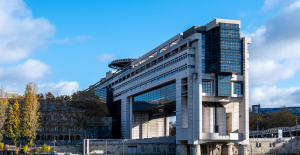 French private sector activity rebounded in April thanks to services
French private sector activity rebounded in April thanks to services “Helldivers 2” player revolt forces Sony to backtrack
“Helldivers 2” player revolt forces Sony to backtrack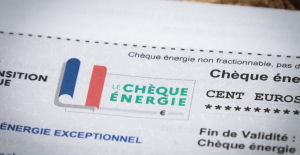 Energy check: have you not received the aid even though you think you are eligible? A complaints counter will open... in July
Energy check: have you not received the aid even though you think you are eligible? A complaints counter will open... in July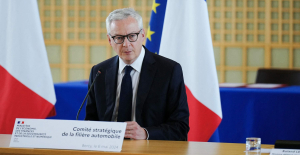 Automobile: France will be electric, reaffirms Bruno Le Maire
Automobile: France will be electric, reaffirms Bruno Le Maire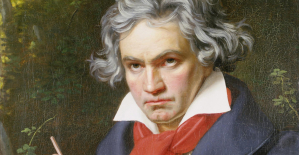 Vienna, Paris, Milan celebrate the 200th anniversary of Beethoven's 9th Symphony
Vienna, Paris, Milan celebrate the 200th anniversary of Beethoven's 9th Symphony Cannes Film Festival: call for strike one week before opening
Cannes Film Festival: call for strike one week before opening Wonder Woman stuntwoman Jeannie Epper dies at 83
Wonder Woman stuntwoman Jeannie Epper dies at 83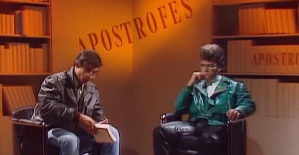 “We had to remove the baccalaureate, considered too difficult”: when the Unknowns made fun (gently) of Bernard Pivot
“We had to remove the baccalaureate, considered too difficult”: when the Unknowns made fun (gently) of Bernard Pivot Omoda 7, another Chinese car that could be manufactured in Spain
Omoda 7, another Chinese car that could be manufactured in Spain BYD chooses CA Auto Bank as financial partner in Spain
BYD chooses CA Auto Bank as financial partner in Spain Tesla and Baidu sign key agreement to boost development of autonomous driving
Tesla and Baidu sign key agreement to boost development of autonomous driving Skoda Kodiaq 2024: a 'beast' plug-in hybrid SUV
Skoda Kodiaq 2024: a 'beast' plug-in hybrid SUV The home mortgage firm rises 3.8% in February and the average interest moderates to 3.33%
The home mortgage firm rises 3.8% in February and the average interest moderates to 3.33% This is how housing prices have changed in Spain in the last decade
This is how housing prices have changed in Spain in the last decade The home mortgage firm drops 10% in January and interest soars to 3.46%
The home mortgage firm drops 10% in January and interest soars to 3.46% The jewel of the Rocío de Nagüeles urbanization: a dream villa in Marbella
The jewel of the Rocío de Nagüeles urbanization: a dream villa in Marbella Facing Jordan Bardella, the popularity match turns to Gabriel Attal’s advantage
Facing Jordan Bardella, the popularity match turns to Gabriel Attal’s advantage Europeans: a senior official on the National Rally list
Europeans: a senior official on the National Rally list Blockade of Sciences Po: the right denounces a “drift”, the government charges the rebels
Blockade of Sciences Po: the right denounces a “drift”, the government charges the rebels Even on a mission for NATO, the Charles-de-Gaulle remains under French control, Lecornu responds to Mélenchon
Even on a mission for NATO, the Charles-de-Gaulle remains under French control, Lecornu responds to Mélenchon These French cities that will boycott the World Cup in Qatar
These French cities that will boycott the World Cup in Qatar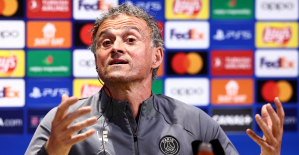 PSG-Dortmund: “Calm”, Mbappé, “like an orchestra”… Luis Enrique gives the keys to the match
PSG-Dortmund: “Calm”, Mbappé, “like an orchestra”… Luis Enrique gives the keys to the match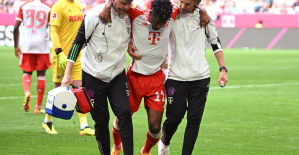 Bundesliga: Kingsley Coman resumed racing five weeks before Euro 2024
Bundesliga: Kingsley Coman resumed racing five weeks before Euro 2024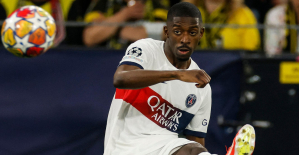 Ligue 1: Dembélé, Lacazette and Aubameyang, nominated for the best player of the month of April
Ligue 1: Dembélé, Lacazette and Aubameyang, nominated for the best player of the month of April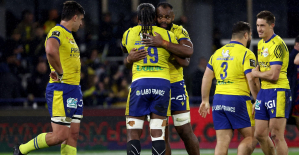 Top 14: at what time and on which channel to follow Perpignan-Clermont?
Top 14: at what time and on which channel to follow Perpignan-Clermont?




